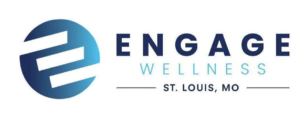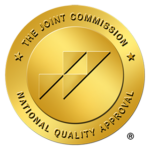12-Step Facilitation Therapy In St. Louis | Engage Wellness Missouri
A Practical Process For Recovery and Restoration
Pursuing Recovery With Effective Help and Empowering Hope

What is 12-Step Facilitation Therapy?
The Twelve Steps or 12-step facilitation therapy is a step-by-step process outlined in Alcoholics Anonymous’ primary curriculum, The Big Book, for developing abstinence and cultivating recovery habits. They’re found in the “How It Works” chapter, which contains a series of steps that create a structured and gradual process for recovery, starting with shifting big picture perspectives and drilling down into actionable tasks.
The 12 steps are appropriate for anyone struggling with substance abuse or alcohol addiction who wants to pursue sobriety. As a therapy model, most groups meet for an hour on a daily or weekly basis, led by a clinician or peer leader.
At Engage Wellness Missouri, we’ve seen the benefits of working the 12 steps firsthand and have blended this time-tested process with a therapy approach to facilitate holistic healing.
How (and Why) Twelve-Step Facilitation Therapy Works
The 12 steps or Twelve Traditions are not a therapy modality on their own, but they create a fellowship of peers who are connected by common experiences and who share a goal of recovery through the application of the 12 steps.[1] In contrast, 12-step facilitation therapy is an integrated model that blends the steps with other mental health techniques to inspire active participation in the steps to promote sustained sobriety.
This approach to addiction treatment is effective because it promotes several key recovery factors, including social support, reduced exposure to triggers, increased independence, positive role models, development of coping skills, opportunities for engaging in positive activities, and fostering hope.[2]
This is merely one of several evidence-based treatments offered at Engage Wellness. As a new client, you or your loved one will be assigned an individualized treatment plan that outlines the specific treatments included and your daily schedule. Other therapy options may consist of cognitive behavioral therapy, medication-assisted treatment, and more.

Efficacy of 12-Step Facilitation Therapy
Medical analyses of the effectiveness of the AA process reveal that its strength lies in its ability as a program to increase client participation in recovery measures, which thereby increases abstinence rates.[3] This format for treatment can help you or a loved one struggling with drug or alcohol use disorder to fully invest in long term, community-based addiction recovery support nd sustain sobriety.
Studies show that the median timeline for abstinence increases for those who participate in the 12 steps. Numbers reported by Alcoholics Anonymous (AA) and Narcotics Anonymous (NA) are more than 5 years of abstinence, with one-third of each group in the study charting at 1 to 5 years of abstinence.[4] Additional data shows that consistent support group attendance in 12-step programs, roughly two to four meetings per week, is associated with better abstinence outcomes and long-term sobriety.
What to Expect from 12-Step Facilitation Therapy In St. Louis
The 12-step facilitation approach is useful in navigating substance use disorder and alcohol treatment as it provides a practical and structured framework to actively work through your recovery. Here are the official steps, from Alcoholics Anonymous:[5]

12-Step Facilitation Therapy In St. Louis at Engage Wellness
At Engage Wellness Missouri, the 12 steps are a core tenet of what we do. Every level of care offers opportunities to participate in this alcohol and substance abuse treatment approach. The scope and timeline for 12-Step Facilitation Therapy will be prescribed based on individualized treatment plans as assigned by our clinicians. Treatment services are offered as part of the following treatment options:



